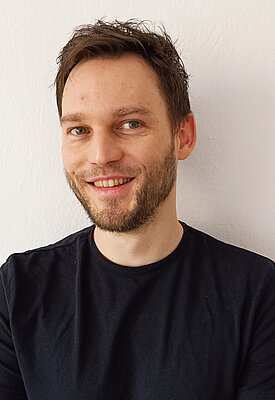Dr. Matej Ivančík
Associated Researcher

Dr. Matej Ivančík
Associated Researcher
| matej.ivancik(at)uniba.sk |
Matej Ivančík currently works as an Assistant Professor at the Department of General History at the Faculty of Arts, Comenius University Bratislava. He deals with intellectual history, focusing on the history of post-communist democracy, political thought and more broadly the history of East Central Europe. He is a co-founder of the international research group Intellectual History in East Central Europe.
Current research Project:
Neoliberalism’s Entanglement with Democracy in Post-Socialist Slovakia
Liberal democracy and neoliberalism arrived hand in hand to post-socialist societies, constituting a seemingly intertwined package whose underlying rationale is far from self-evident. This project seeks to unravel the complex web of interactions between these two social institutions and how they contributed to the emergence of democracy in East Central Europe (ECE) following the events of 1989. However, the transition from socialist regimes to market-driven democracies in ECE nations not only ushered in new institutions, pluralistic systems, and market economies but also engendered an impactful intermingling of neoliberalism as a set of ideas and liberal democracy. This entanglement, manifested through novel ideas, evolving political landscapes, elite interests, and languages of legitimacy, practices, and representations, constitutes the focal point of this investigation.
The project endeavors to excavate the nuanced interplay of neoliberal ideas with post-socialist liberal democracy in ECE, with a particular focus on the transformative era of the 1990s and early 2000s. It will investigate the case of Slovakia in a broader context of Czecho-Slovakia and ECE. The case of Slovakia is crucial to demonstrate the counterintuitive connection between promoting neoliberal ideas and aspiration to establish liberal democracy. Simultaneously, the project probes the reciprocal relationship, examining how political discourses and practices played an active role in legitimizing the neoliberal thought. Rather than taking for granted a direct connection between the rise of liberal democracy and the advent of a free-market economy ideational background, this research critically scrutinizes the historical roots of this entanglement.
Unlike in Chile, South Korea or Spain, in Slovakia, neoliberal ideas played a central role defying authoritarian rule and illiberal regime. And unlike in majority of the cases, I argue that for Slovakia, women experts, intellectuals and researchers from the less prominent institutions and positions were of the biggest importance in both producing and promoting neoliberal ideas either in establishing liberal democracy or subsequently fighting the authoritarian rule of the 1990s. This historically and regionally conditioned conjunction makes the case of Slovakia unique and significant for understanding how neoliberal ideas translated into liberal-democratic legitimacy.
Selected bibliography
Matej Ivančík, A recurring bone of contention: The memory politics of Slovakia’s economic transformation. In: Veronika Pehe – Joanna Wawrzyniak (eds.) Remembering the Neoliberal Turn: Economic Change and Collective Memory in Eastern Europe After 1989, Routledge, 2023.
Matej Ivančík, Rethinking Forgotten Thoughts, review, Onur Acaroglu, Rethinking Marxist Approaches to Transitions: Theory of Temporal Dislocation, Kontradikce, roč. 6, č. 2, 2022.
Matej Ivančík, From Democrats to Liberals: The Ambiguous Origins of Liberals and Civil Society in Slovakia after 1989. In: Soudobé dějiny, 28, 3, 2021.
Matej Ivančík, State of Grace: A Probe into Understanding Democratic Trust and Legitimacy through the Eyes of the Public Against Violence. In: Forum Historaie, 15, 2, 2021.
Szabina Kerényi, Jiří Navrátil, and Matej Ivančík, Civil Society in Central Europe: The Leftist Perspective (Prague: Rosa Luxemburg Stiftung, 2020).
Matej Ivančík, Abandoning the Ethos of Change: The Prague Spring Portrayal in the Western Liberal Democratic Press, in Ľubor Matejko and Matej Ivančík, eds. Narratives of Remembrance. 1968: The Past Present and the Present Past. (Bologna and Bratislava: Vydavateľstvo Univerzity Komenského v Bratislave, 2020).